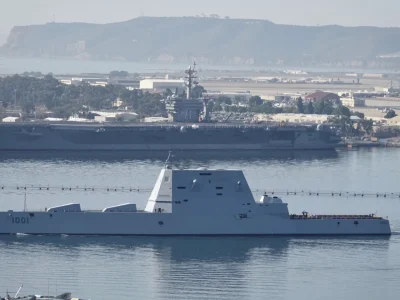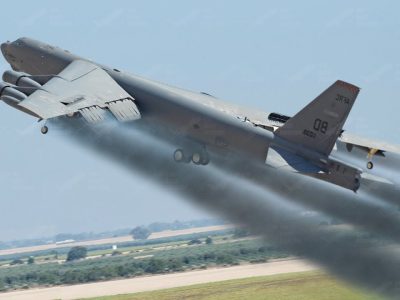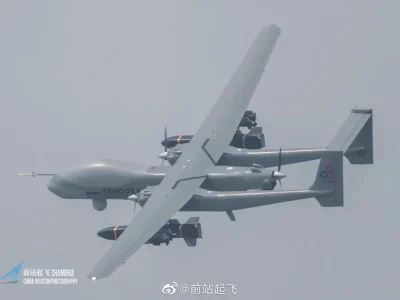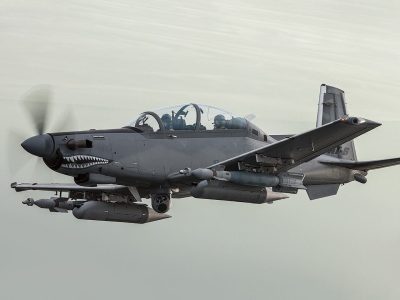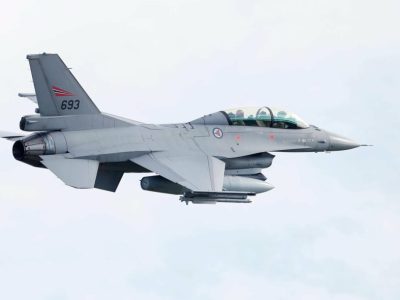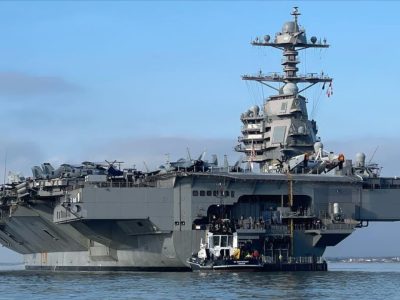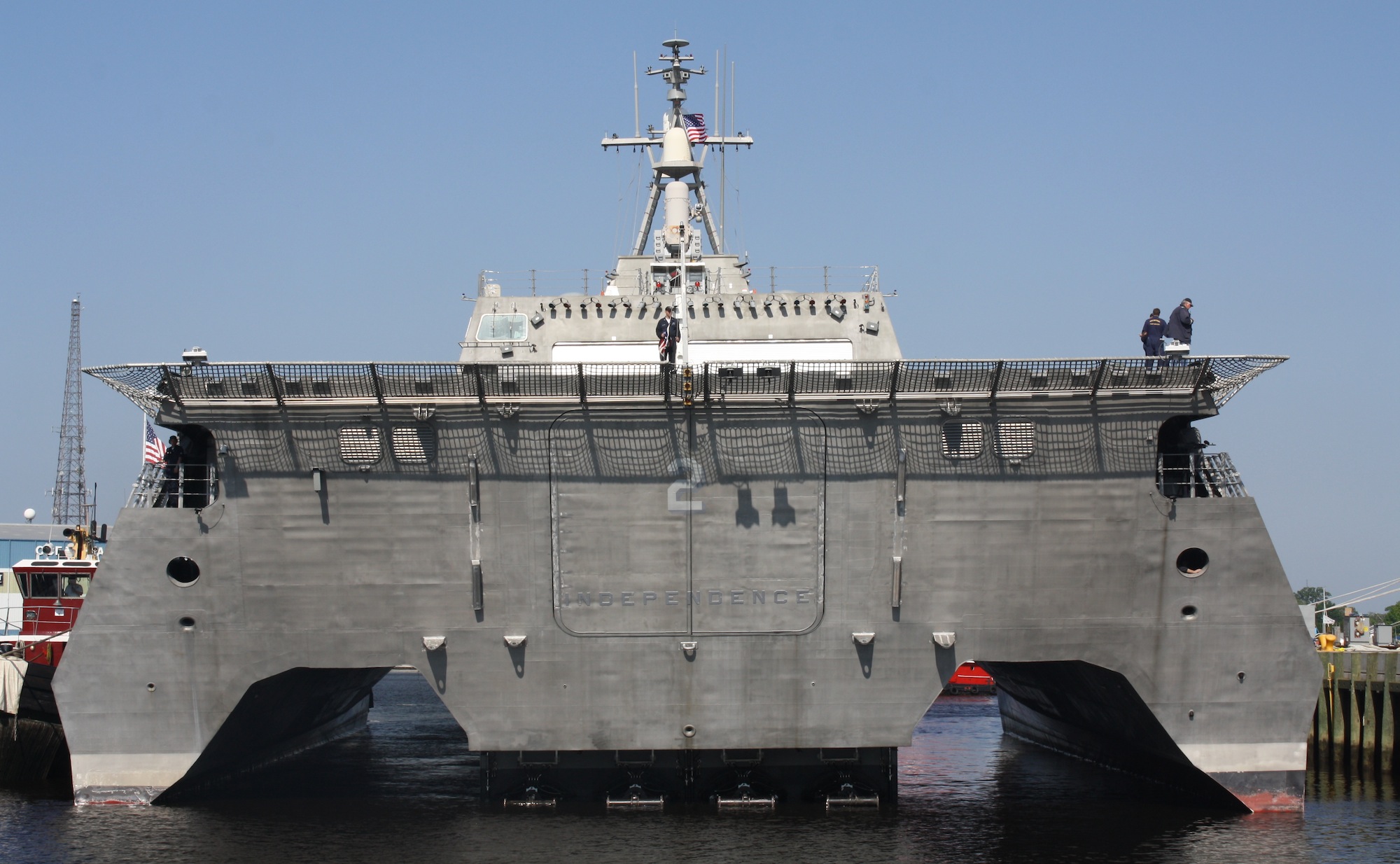
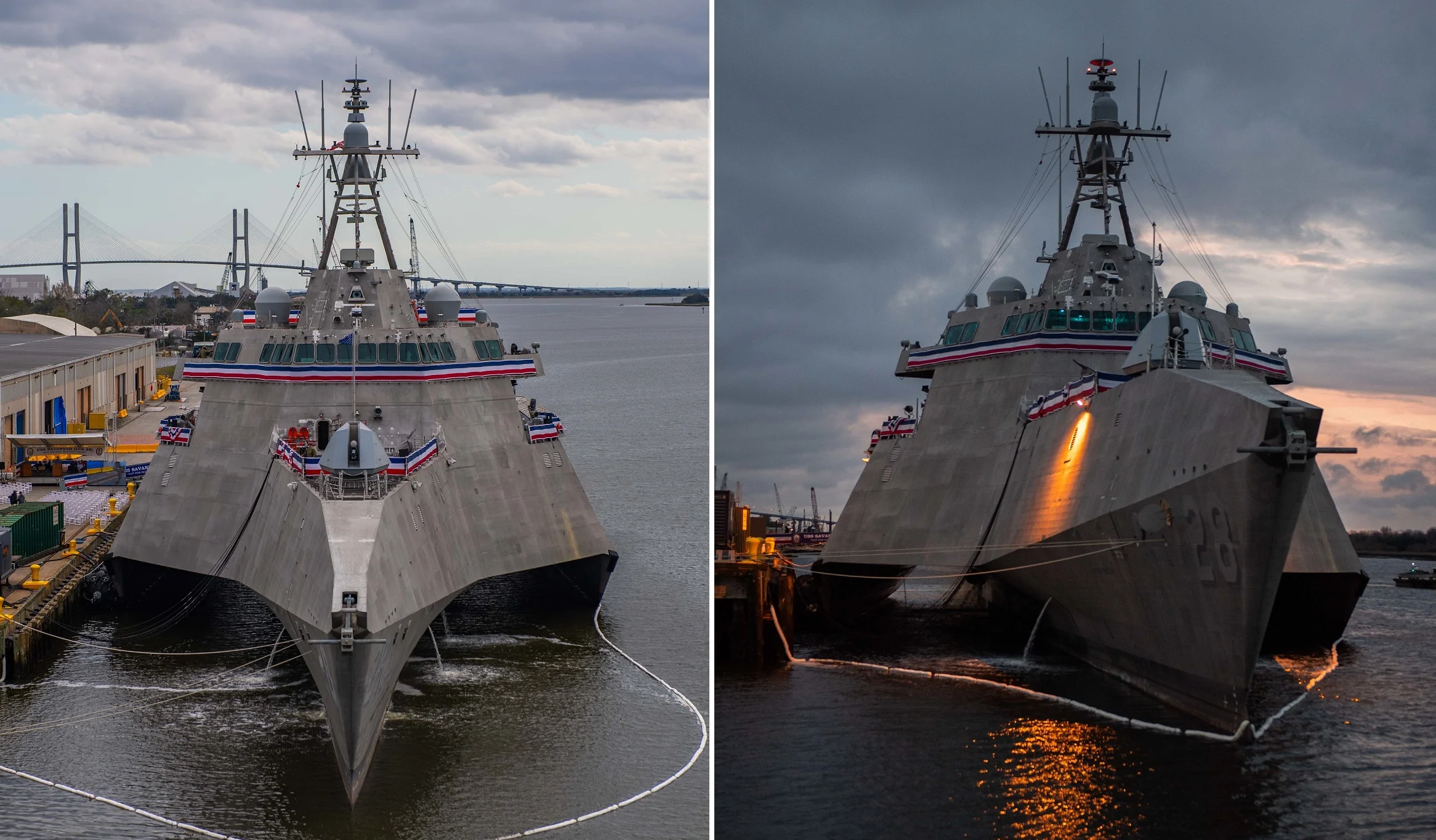
“It’s fitting that it would find its home in Savannah – a city whose agility has allowed her to be a defining force in the entire scope of American history,” said principal speaker U.S. Representative Earl L. “Buddy” Carter, Georgia’s First District.
Mrs. Diane Davison Isakson is the ship’s sponsor and wife of the late Honorable Johnny Isakson, former Senator from Georgia. Their daughter, Julie Isakson Mitchell, served as the Matron of Honor. The Honorable Meredith Berger, performing the duties of the Under Secretary of the Navy recognized Mrs. Isakson.
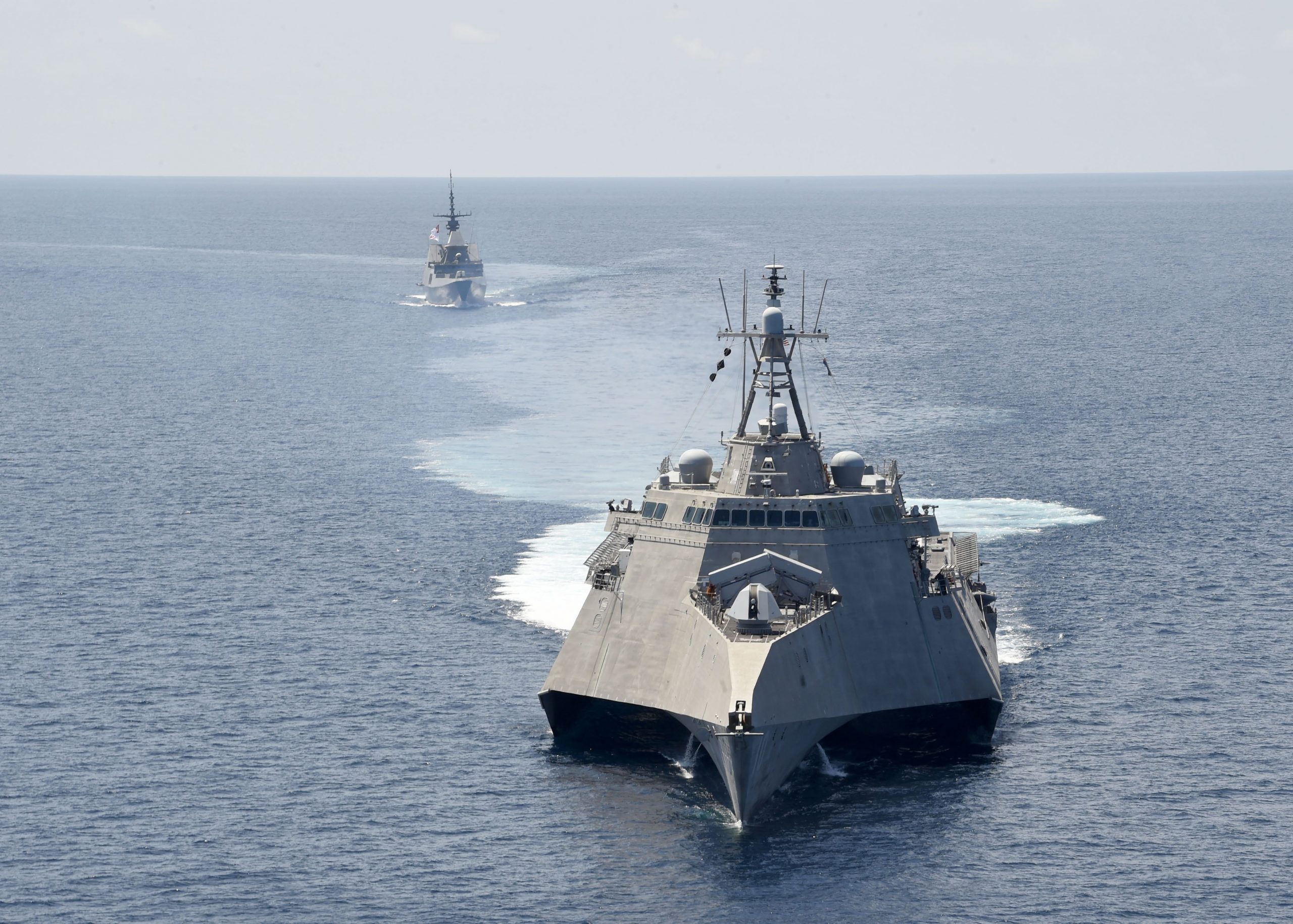
“It is said that the character and spirit of the ship’s sponsor serves to enrich, guide, and protect the ship and her crew,” said Berger. “You come from a family steeped in service. You’ve got Navy in your blood.”
Guest speakers for the event also included Mayor of Savannah Cosby Johnson, Mayor of Brunswick Van Johnson, and Commander, Naval Air Systems Command Vice Adm. Carl Chebi.
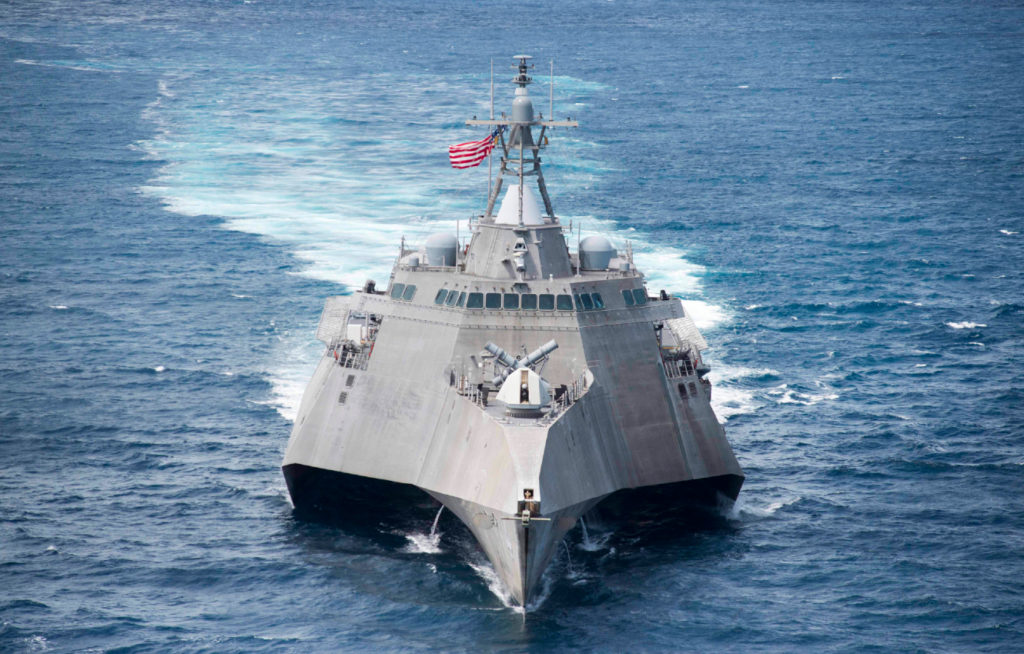
“The USS Savannah is poised to represent its motto across the globe, not for self but for others,” said Chebi. “Today as we commission her as an operating force of the U.S. Navy. The ship and her crew will carry on the legacy of the five other ships that had the honor to bear the name Savannah since 1798. They participated in the Mexican War, the Civil War, World War I, World War II, and the Vietnam War. The 6th USS Savannah’s history has yet to be written but will be enriched in stories of honor, courage, and commitment.”
Mayor Van Johnson highlighted the value the Savannah brings to the Navy.
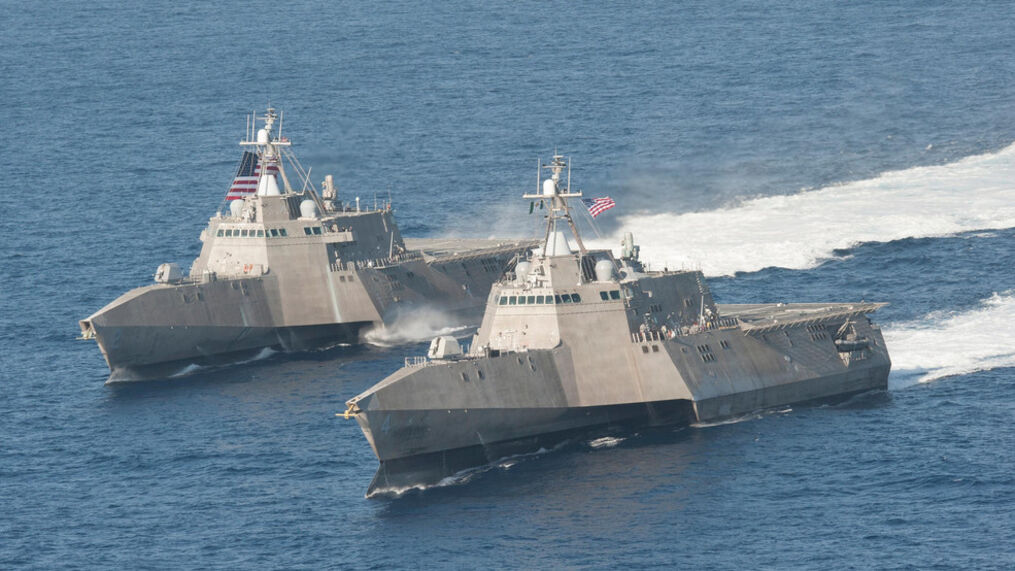
“It cannot be understated, the importance of the day, the significance of this vessel, the importance of the company that built it, the strategic and operational necessity that our Navy remains the premier maritime force in the world,” said Johnson “Therefore, in addition to having the finest men and women to serve, they deserve a premier vessel to serve upon.”
During the ceremony, Savannah’s commanding officer, Cmdr. Kevin M. Ray, reported the ship ready, and Mrs. Isakson gave the traditional order to “Man our ship and bring her to life!”
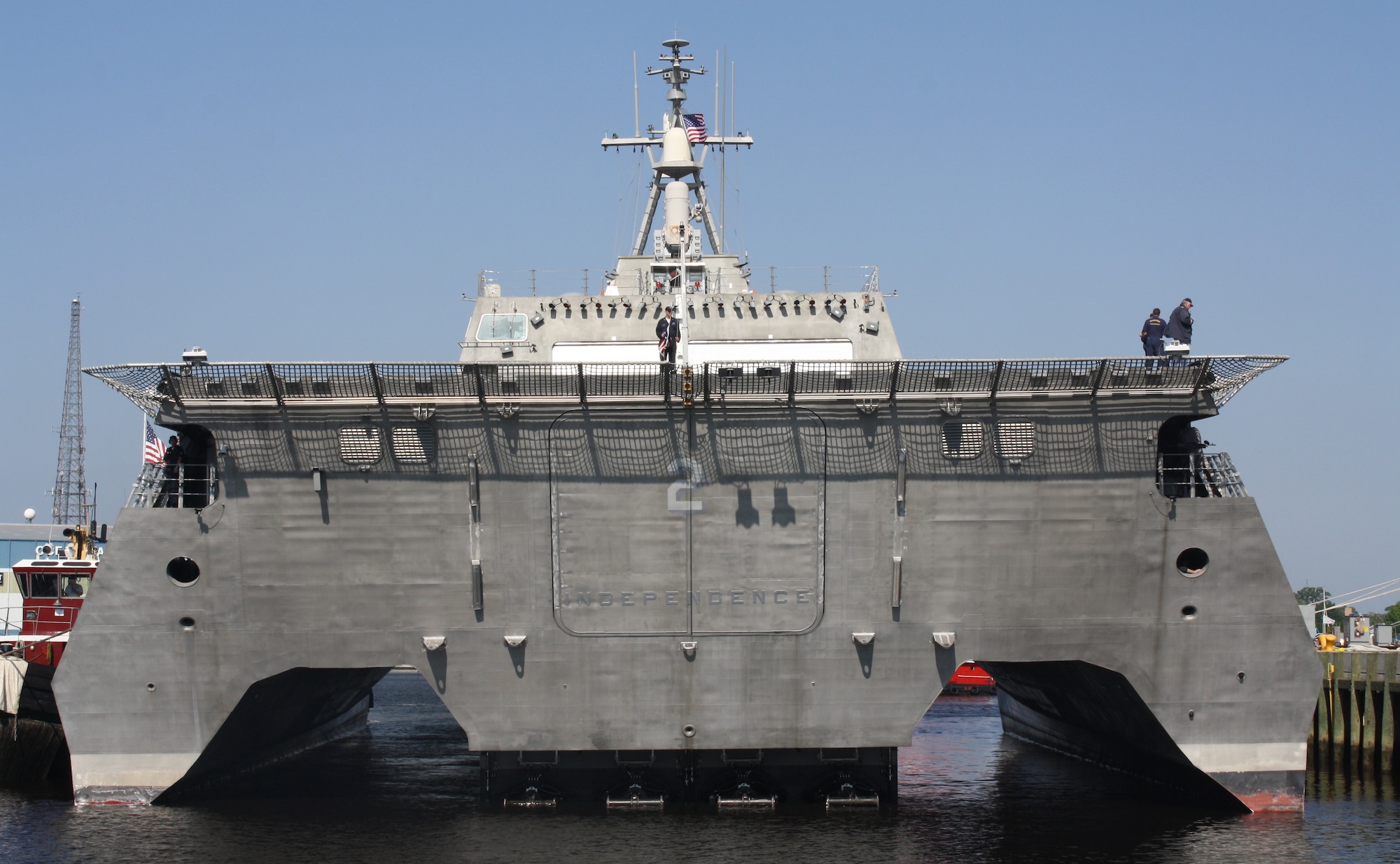
“To the city of Savannah, I assure you, the fine men and women of our crew, who I am humbled to lead, represent everything that is great about your city. Pride, patriotism, resiliency, diversity, and hospitality,” said Ray. “We will carry your name forward, wherever our Nation asks us to go, and we will represent you well.”
LCS 28 is the 14th Independence-variant LCS and 28th in its class. It is the sixth ship named in honor of the city of Savannah. The first was a coastal galley that provided harbor defense for the port of Savannah, 1799-1802. The second USS Savannah, a frigate, served as the flagship of the Pacific Squadron and then served in the Brazil Squadrons and Home Squadrons, 1844-1862. The third USS Savannah (AS 8) was launched in 1899 as the German commercial freighter, Saxonia. Seized in Seattle, Washington, upon the outbreak of World War I, the freighter was converted to a submarine tender and supported submarine squadrons in both the Atlantic and Pacific, 1917-1926.
The fourth USS Savannah (CL 42) was a Brooklyn-class light cruiser commissioned in 1938. The warship served through the entire Mediterranean campaign, receiving three battle stars for service before decommissioning in 1945. The fifth USS Savannah (AOR 4) was a Wichita-class replenishment oiler commissioned in 1970. AOR 4 earned one battle star and a Meritorious Unit Commendation for service in the Vietnam War. The oiler provided underway replenishment services in the Atlantic and Indian oceans until decommissioning in 1995.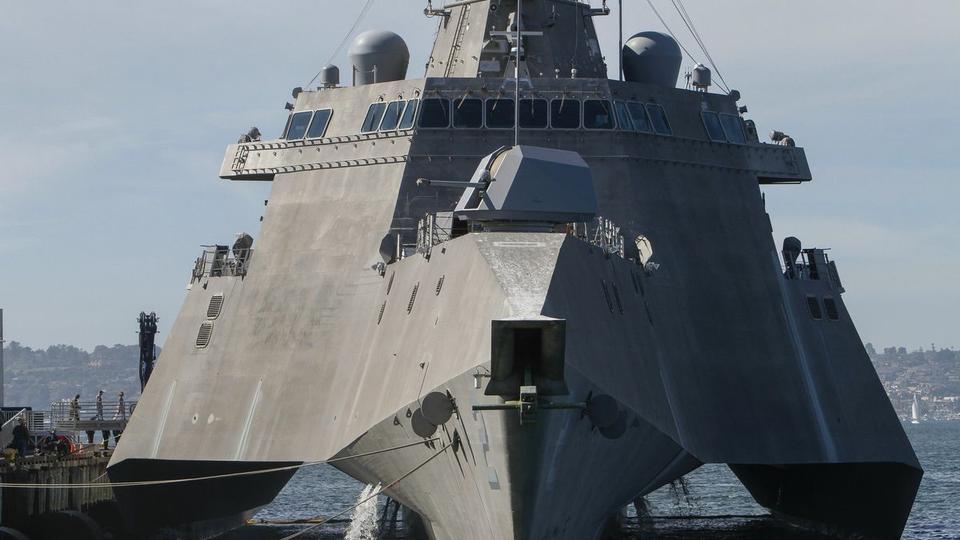
Following commissioning, Savannah will sail to California to be home ported in San Diego, joining sister ships USS Coronado (LCS 4), USS Jackson (LCS 6), USS Montgomery (LCS 8), USS Gabrielle Giffords (LCS 10), USS Omaha (LCS 12), USS Manchester (LCS 14), USS Tulsa (LCS 16), USS Charleston (LCS 18), USS Cincinnati (LCS 20), USS Kansas City (LCS 22), USS Oakland (LCS 24), and USS Mobile (LCS 26).
The LCS is a fast, agile, mission-focused platform designed to operate in near-shore environments while capable of open-ocean tasking. The LCS can support forward presence, maritime security, sea control, and deterrence.
BY:https://defence-blog.com
